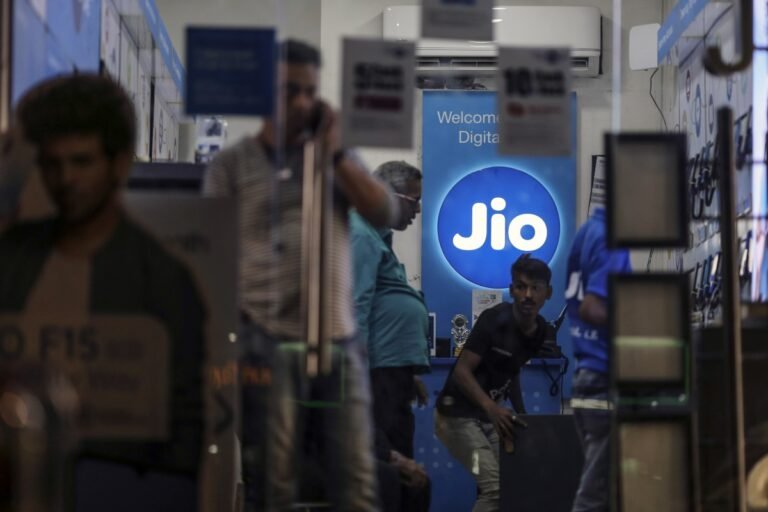Reliance Jio, India’s largest telecom operator, has launched what analysts expect to be a global rate hike in the world’s second-largest wireless market, raising some of its plans by more than 20 percent.
Jio’s revised pricing structure, which will come into effect on July 3, sees its Rs 155 ($1.87) entry-level plan, which offers 2GB of data and unlimited calls, rise to Rs 189. Similarly, a plan that provides 1GB of daily data usage will increase from Rs 209 to Rs 249. Jio is also increasing the prices of bimonthly, quarterly, annual, postpaid and add-on data plans.
Jio, a subsidiary of Indian conglomerate Reliance Industries, has disrupted India’s wireless market over the past decade with its ultra-affordable mobile phone plans. The move forced established competitors to cut their prices significantly.
Akash Ambani, chairman of Reliance Jio, said in a statement on Thursday that the move is “a step towards driving industry innovation and driving sustainable growth through investments in 5G and AI technology”.
It’s worth remembering that even after the price hikes, Jio’s offering is among the most affordable in the world. Additionally, Jio said today that it will offer customers “unlimited 5G data” if they subscribe to any plan that previously offered usage of 2GB or more per day.
Reliance, Bharti Airtel, Vodafone Idea and BSNL-MTNL dominate the Indian wireless market. Jio held over 40% of the market in April, with its nearest rival, Airtel, at 33.1%.
Analysts have been predicting a major shift in the industry’s pricing strategy for months. The consensus view was for growth of 15-25%, a move seen as critical to stabilizing and growing average revenue per user.
The price hike will underscore the industry’s shift from a focus on gaining market share to sustainable revenue generation, analysts said, as operators move closer to completing 5G coverage. Indian telcos spent more than $20 billion to buy 5G airwaves alone. They try to find ways to make more money. Last year, they proposed that tech companies pay telcos to use the network.
“Jio’s 20% tariff hike should translate into ARPU growth of 17% by our estimate, marginally higher than the roughly 15% we were building, with the timing broadly in line with our expectations,” Goldman Sachs said in a research note Friday.
“Assuming a similar magnitude of tariff hike by other players, annual EBITDA from such tariff hike would be $1.6bn/$1.3bn/$0.6bn for Jio/Bharti/Vodafone Idea. This translates to 20-25% of Bharti (India)/Jio’s current annual EBITDA and around 55% of Vodafone Idea.”
Indian consumers are likely to accept the price hikes because, as Bank of America eloquently put it, “there is a lack of alternatives/improved stickiness of data offers”.
